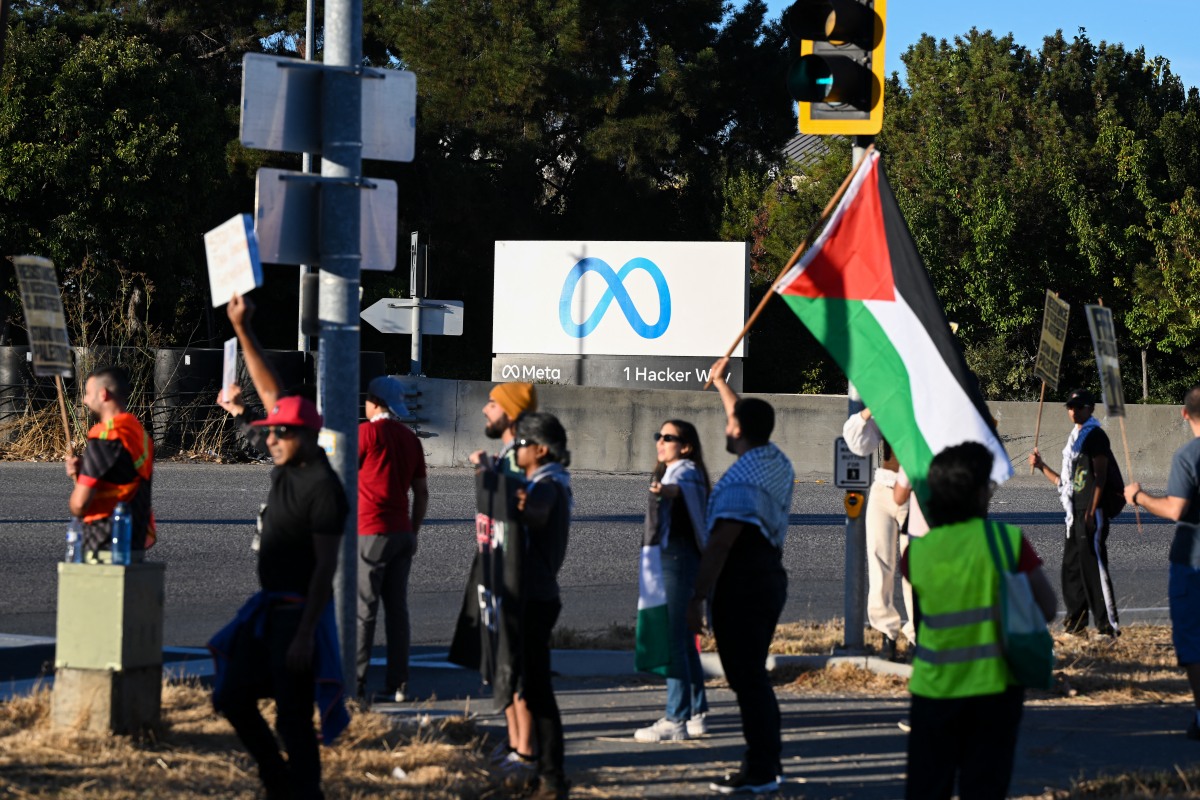Yesterday, the MENA Alliance for Digital Rights sent an open letter to Meta signed by 12 organizations regarding its ongoing failure to uphold its human rights obligations in regards to Palestine. The letter calls out Meta’s lackluster 2024 progress report on how it is implementing the recommendations from Business for Social Responsibility’s (BSR) Human Rights Due Diligence of Meta’s Impacts in Israel and Palestine in May 2021. BSR’s analysis was conducted in response to a recommendation from Meta’s own Oversight Board in a case published September 2021, in which the Board overturned Meta’s incorrect removal of a reshared Al Jazeera article. This removal happened during Israel’s assaults on Palestine in May of 2021, and even the fact that the content came from a verified news article wasn’t enough to protect it.
The letter was led by 7amleh, a Palestinian organization that has been consistently sounding the alarm about content moderation in and related to Palestine, supporting users facing content moderation problems, and documenting digital rights violations. As Eric Sype of 7amleh noted, “Civil society has been more or less asking the same thing of Meta for years, and when it comes to transparency and accountability, Meta has made essentially no progress on our core demands.” Like 7amleh, many of the signatories to the letter have been working on content moderation in the MENA and advocating directly with Meta for years, some for more than a decade. In fact, the Oversight Board’s recommendation that Meta conduct human rights due diligence in regards to Palestine wasn’t a novel idea- it echoed years of advocacy by MADR members and others, including the Stop Silencing Palestine campaign. As the letter indicates, despite small wins, the fundamental content moderation failures happening in May 2021 persist, and in some cases have gotten worse, even as Israel continues its relentless attacks on Gaza and the rest of Palestine, and now on Lebanon, and as social media remains a key conduit of information in the entire region.
As the letter reflects, there is growing regional solidarity around content moderation issues in the MENA. Most of the organizations supporting this letter are not Palestinian, but Palestine is a key area of advocacy and interest for MENA civil society. That is not only because of what it represents, but also because almost every content moderation issue faced by Palestinians and Palestine-related content impacts the entire region as well. All of these groups have been tirelessly addressing removal of human rights documentation and political content in Arabic as well as threats against marginalized groups, including LGBTQ people, that go unaddressed. These failures, in Palestine and across the region, are often driven by poor support for the Arabic language, lack of automated systems to address dangerous hate speech and incitement to violence, overreliance on US lists and standards, a general lack of transparency around the Dangerous Organizations and Individuals list, and undisclosed cooperation with governments. These are not insurmountable problems. As Marianne Rahme, Policy Coordinator for SMEX, notes, “Meta’s continual disregard for our demands shows a clear lack of commitment to business and human rights principles. The issue is not Meta’s capability to address these biases, but rather its unwillingness .”
So what will it take for Meta to take meaningful action? The letter comes after years of advocacy, and dozens of recommendations from the Oversight Board that reflect that advocacy.* It’s going to take sustained pressure from civil society, but civil society needs support. As international institutions increasingly turn their eye towards the situation in Palestine, we hope that they will also consider specifically calling out social media’s role in violating human rights, directly and indirectly. Meta should not require UN censure to take action, but historically that has been required, as in the case of Myanmar. Special Rapporteur on the promotion and protection of freedom of expression Irene Khan did just that in her most recent report, in “Global threats to freedom of expression arising from the conflict in Gaza,” in which she stated in no uncertain terms that “the platforms have removed Palestinian content excessively,” and called out the role of Meta in particular. Hopefully, more will follow her lead.
To read the full letter click here.
Featured image: Tayfun Coskun / ANADOLU / Anadolu via AFP
*Disclaimer: The author Dia Kayyali worked as a Case and Policy Officer at the Oversight Board for a year and a half. You can read their full bio here.

jllfyill